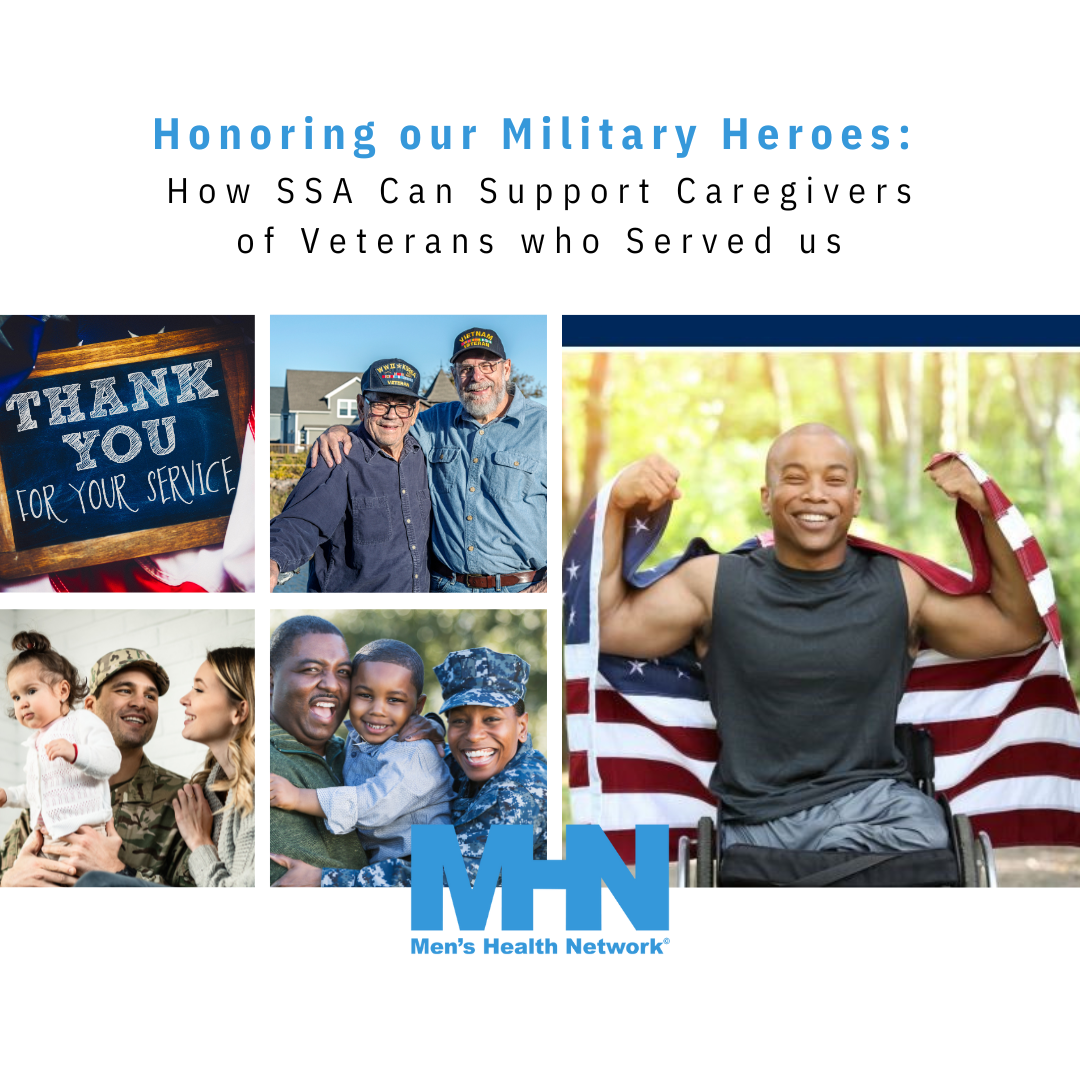Honoring our Military Heroes:
How Social Security (SSA) Can Support Caregivers of Veterans who Served us
On Veterans Day, we honor and thank the veterans who bravely served our country and the military service members who serve today.
Social Security benefits protect veterans when injuries prevent them from returning to active duty or performing other work. Both the U.S. Department of Veterans Affairs (VA) and Social Security provide disability benefits to veterans.
As a veteran, you may qualify for disability benefits through one or both programs.
Veteran’s Day is a time to honor the brave individuals who have served in our military and to acknowledge the sacrifices made by their families and caregivers. Many veterans and their loved ones face unique challenges, from managing health conditions related to service to navigating financial concerns. The Social Security Administration (SSA) provides a range of benefits that can offer critical support to both veterans and their caregivers.
Whether you’re caring for a veteran with disabilities or ensuring they have what they need in retirement, understanding these benefits can make a significant difference in your journey as a caregiver.
Understanding Social Security for Veterans and Their Caregivers
Social Security provides various benefits that can support both the caregiver and the person receiving care, including many who served our country. These benefits extend beyond traditional retirement income to include disability support, survivor benefits, and supplemental income for those in need. Here’s an overview of these options and how they can be a lifeline for veteran caregivers.
-
Disability Benefits for Veterans with Service-Related Conditions
For many veterans, service can lead to injuries or health conditions that limit their ability to work. Social Security Disability Insurance (SSDI) and Supplemental Security Income (SSI) offer financial assistance to those with medical conditions preventing them from maintaining employment.
- SSDI helps veterans who have worked long enough to earn sufficient “work credits” under Social Security. The requirements vary based on age and service history.
- SSI is available to veterans and others with limited income and resources, including those who may have disabilities unrelated to their service but still need assistance.
These benefits can ease the financial strain on caregivers by helping cover the costs of medical care and essential needs, allowing caregivers to focus on providing the best support possible.
-
Planning for the Future with Retirement Benefits
Many veterans’ caregivers make sacrifices in their own careers to provide care, which can impact their future retirement. Fortunately, Social Security offers spousal and survivor benefits that can provide financial support during retirement for those caring for veterans.
- Spousal Benefits allow caregivers to receive up to half of their spouse’s retirement benefit, which can be particularly helpful if caregiving has limited their ability to work full-time.
- Survivor Benefits help families by providing continued income if the veteran passes away, offering stability during difficult times.
These benefits honor the care-giving sacrifices made by spouses and family members, ensuring they aren’t left financially vulnerable later in life.
-
Social Security for Dependent Parents of Veterans
In some cases, parents of veterans may qualify for survivor benefits if they were financially dependent on their child who served. This assistance is designed to support parents navigating their later years, helping replace income that may have been lost due to the death of a loved one. For caregivers supporting veteran parents, these benefits offer crucial support in honor of a family’s dedication to service.
-
Support for Minor Children or Grandchildren of Veterans
Veterans caring for grandchildren or children who have lost parents or are disabled can also look to Social Security for support. Minor children of veterans who are retired, disabled, or deceased may qualify for benefits, providing caregivers with additional resources to help cover the costs of daily needs.
Applying for Social Security Benefits as a Veteran’s Caregiver
Applying for Social Security benefits can feel overwhelming, but understanding the basics can help simplify the process.
Here are steps for veterans and caregivers to get started:
- Determine Eligibility: Check the SSA guidelines for eligibility, including work credit requirements and financial need for programs like SSDI and SSI.
- Gather Documentation: Have medical records, identification, and work history ready.
- Apply Online or Visit a Local SSA Office: Start the application process on the Social Security Administration website or get assistance in person.
- Follow Up on Your Application: Application reviews can take time, so keep track of your application’s progress and respond promptly to any requests.
For additional guidance, veterans and caregivers can reach out to the SSA or seek advice from professionals who specialize in Social Security benefits.
Emotional and Financial Support for Caregivers of Veterans
Beyond Social Security, many local organizations, nonprofits, and support groups exist to help veteran caregivers. Managing the daily needs of a loved one who served can be challenging, but you don’t have to do it alone. From respite care services to peer support groups, there are valuable resources to ease the demands of caregiving.
This Veteran’s Day: Honoring Service and Sacrifice
On this Veteran’s Day, we remember not only those who served but also the family members and caregivers who support them. Social Security benefits provide one way to ease the challenges faced by caregivers, helping veterans and their families access the financial stability they deserve. Whether it’s through disability support, retirement benefits, or survivor assistance, these programs honor the service and sacrifice of veterans and their loved ones.
If you or a loved one served in the military, take a moment this Veteran’s Day to explore how Social Security benefits may be able to support your family.
Visit the Social Security Administration’s website to learn more and take the next step in securing your care-giving journey.
Read our fact sheet, “Social Security Disability and Veterans Affairs Disability — How Do They Compare?”
Depending on your situation, some members of your family, including your dependent children or spouse, may be eligible to receive Social Security benefits.
If you have a 100% VA compensation rating, we will expedite your disability claim.
Please share this information with the military families you know.
Important Notice for Veterans and Their Caregivers
The SSA automatically and electronically verifies a Military Casualty/Wounded Warrior (MC/WW) or 100% Permanent and Total (P&T) disability rating with the Department of Defense for purposes of confirming the rating. An individual who qualifies for expedited processing based on an MC/WW or 100% P&T rating does not automatically qualify for SSDI benefits. He or she must meet SSA’s program requirements to qualify for SSDI benefits. For more details on eligibility and program requirements, please visit SSA’s official site.





